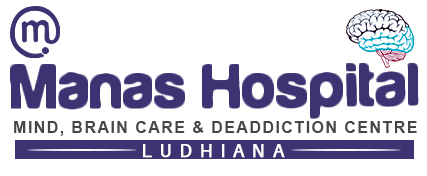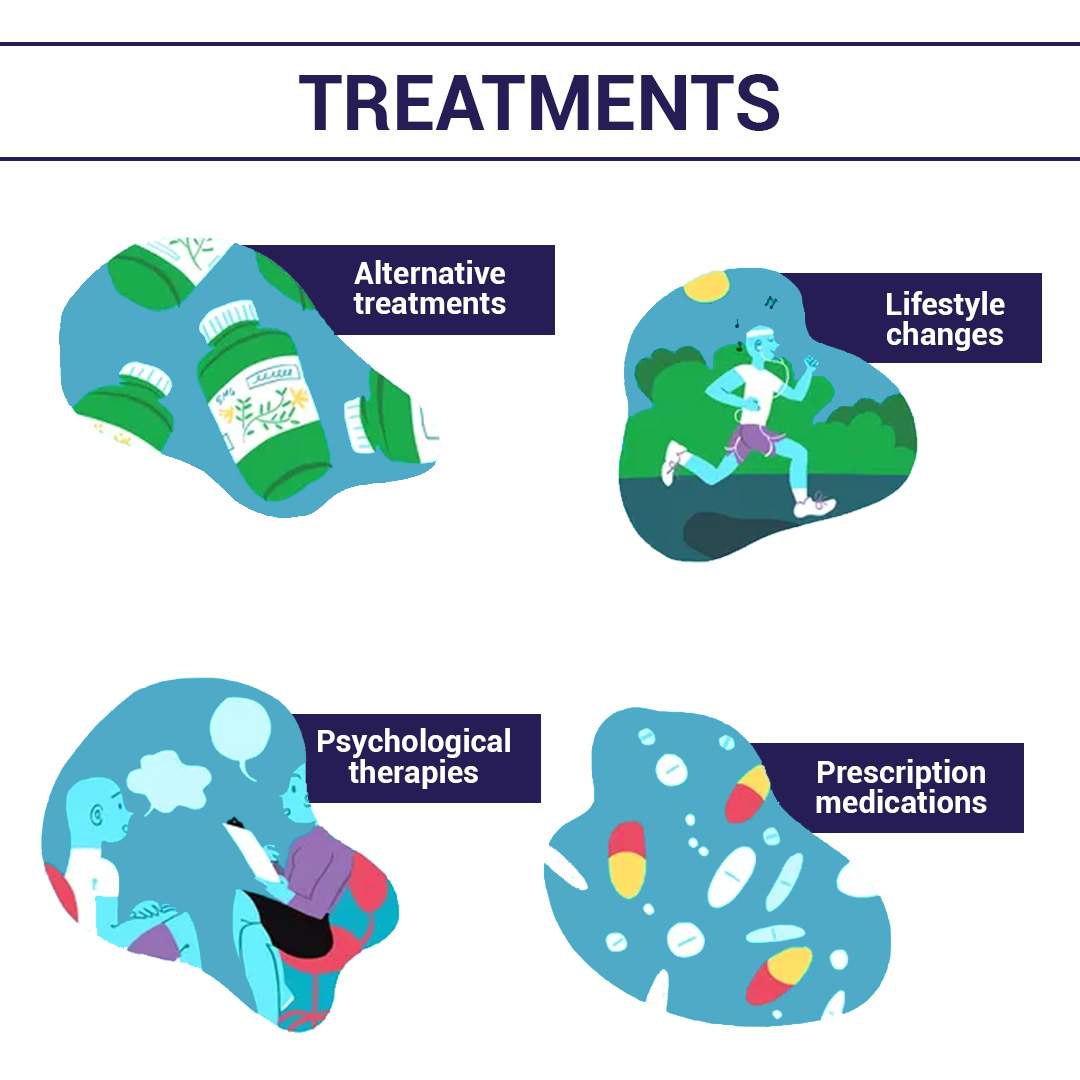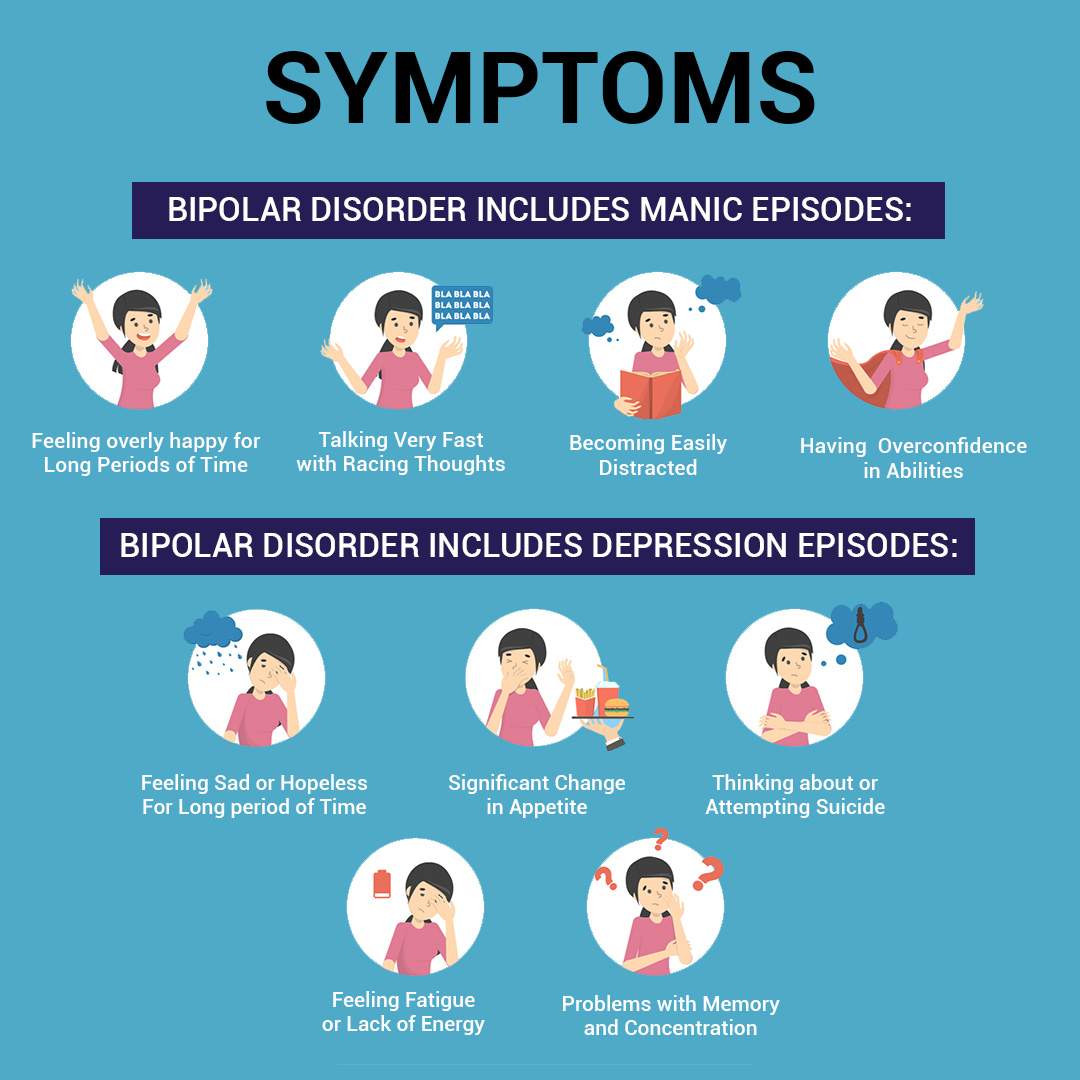Bipolar Disorder
Bipolar disorder is a mental health problem that results in severe mood swings that include emotional lows and emotional highs.
Bipolar Disorder Treatment approach At Manas Hospital
At Manas Hospital, we give the Bipolar Disorder Treatment according to the patient’s condition. To treat the problem, 2 types of treatment options are available.
Cognitive Behavioural Therapy : CBT can help the patient with bipolar and check coping skills, mood monitoring, psychoeducation can educate regarding bipolar, and mood strategies can help to check when the mood is changing and prevent the mood swinging into the depressive bipolar episode, or full-blown manic.
Medication : Bipolar medications can help to stabilize the mood and limit the chances of relapse.
OCD Treatment approach At Manas Hospital
At Manas hospital, OCD Treatment is based on individual treatment programs by following the clinical evidence. The treatment can be done as an outpatient, inpatient, or day patient.
Talking Therapy
Cognitive Behavioural Therapy called CBT to treat OCD patients. It includes 2 types that are based on to change a person’s behavior and thoughts. It includes Exposure Response Prevention (ERP) and Cognitive Therapy (CT).
- ERP is used for anxiety and compulsive behavior. Increasing the strength by helping the person to face fear and making them understand to stop the compulsive behavior.
- CT is goal-directed, problem-solving, and systemic therapy approach. Its main focus is on the way we think and act so that the person can manage and overcome the emotional issue.
Symptoms of Bipolar disorder
Depression
Depression is something which we experience at different times. But, with bipolar disorder, the feeling of depression is worse as it stays for a long time and makes it difficult to manage things easily. You will notice these changes:
Emotional
- Unhappy and it does not go away.
- Feel like crying for no reason
- Not interested in anything or not able to enjoy it.
- Agitated and restless.
- Feeling useless and hopeless
- Suicidal thoughts.
Thinking
- Not able to think positively.
- Not able to make a simple decision.
- Not able to concentrate.
Physical
- Losing appetite and weight
- Problem Sleeping
- Waking earlier than usual
- Feeling utterly tired
- Constipation
- Going off sex
Behavior
- Not able to perform daily activities.
- Feel like crying all day.
- Avoiding meeting people.
Mania
Mania is an extreme sense of energy, well-being, and optimism. This can affect the way you think and judge things. You may have a feeling like you make bad decisions, strange feeling yourself, and occasionally behave in a harmful way. If you become manic, you may notice these things:
Emotional
- Happy and excited
- Irritated with other people who don’t share your optimistic outlook
- Feeling more important than usual
Thinking
- Full of new ideas
- Shifting from one idea to another.
- Hearing voices that are not heard by others
Physical
- Full of energy
- Unable to sleep
- More interested in sex
- Making unrealistic plans
- Very active
- Unusual behavior
- Talking very quickly
- Making odd decisions without thinking of consequences
- Spending money without thinking
- Over-familiar with other people
Psychotic symptoms : If the problem of mania become severe then you can experience these symptoms:
– In a manic episode
You will have majestic beliefs about yourself that you are on an important mission or you have special powers.
– In a depressive episode
You will have a feeling of guilt, that you are the worse person, or you do not even exist.
When you visit our doctor, they will examine your condition and according to that best Bipolar Disorder Therapy will be recommended.
FAQ About Bipolar disorder
Some of the common Bipolar Disorder FAQs answered by our doctor to give you a better understanding of the problem.
Some of its main symptoms are:
- Increased Energy and restlessness
- Sleeplessness
- Extreme irritability
- Decreased energy, fatigue
- Restlessness and irritability
- Difficulty concentrating
- Sleeplessness or sleeping too much
- Increased sexual behavior
- A heightened sense of self-importance
- Spending sprees (Spending a lot of money)
- Bodily symptoms not caused by physical illness or injury
- Thoughts of death or suicide
- Denial that anything is wrong
Till now, there is no blood test or lab test to diagnose the condition. Currently, the diagnosis is based on the symptoms, family history, and course of illness. The type of bipolar disorder will be diagnosed by evaluating the severity and pattern of depressive and manic disorder.
- Bipolar I Disorder : It is defined by manic episodes that last for 7 days or it can be so severe that immediate medical care is needed. In most cases, the depressive episode is for 2 weeks. When the depression or mania symptoms occur the person’s behavior is changed.
- Bipolar II Disorder : It is defined by a depressive episode in which the mood shifts back & forth but they are not a full-blown manic episode.
- Bipolar Disorder Not Otherwise Specified (BP-NOS) : It is diagnosed when a person has symptoms but they do not match the above 2 types. The symptoms do not last for a long time or they are very few.
- Cyclothymic Disorder, or Cyclothymia< : It is a mild form of bipolar disorder. The problem can come back and forth for at least 2 years. But, the symptoms diagnosed do not meet the other types.








